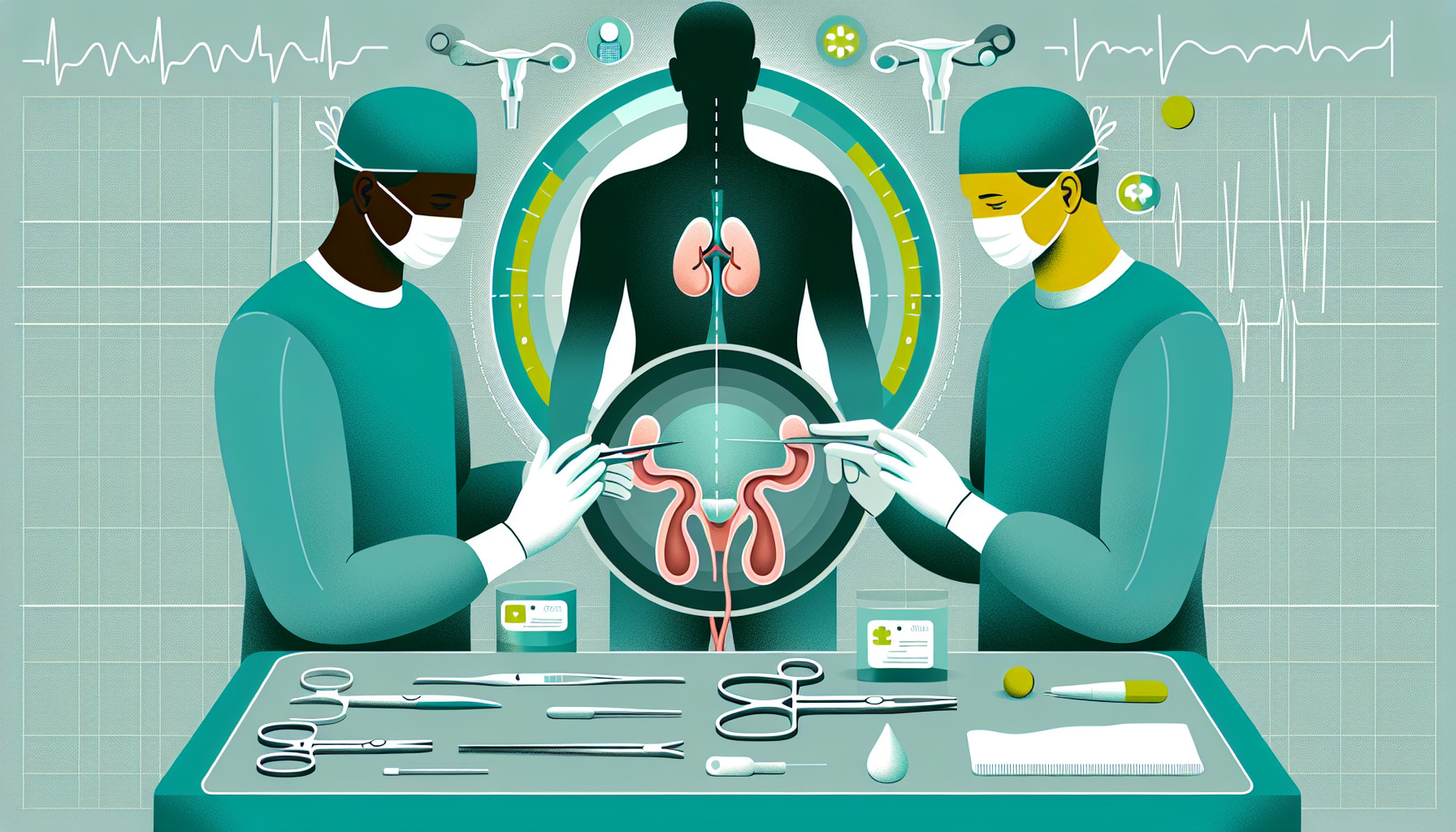Our Summary
This research paper is about a study examining the use of neuraxial analgesia (a type of pain control administered around the spinal cord) versus patient-controlled non-neuraxial analgesia (other types of pain control) after radical cystectomy (surgery to remove the bladder). The researchers looked into the short and long-term outcomes of both types of analgesia in patients post-surgery.
They analyzed 550 studies and found nine that met their criteria. The results showed that patients who received neuraxial analgesia had a higher rate of complications within 90 days post-surgery. In terms of how long patients stayed in the hospital, four out of six studies found no improvement for patients who received neuraxial analgesia compared to those who did not.
When it came to opioid use (strong painkillers) within 72 hours after surgery, two out of three studies showed that neuraxial analgesia reduced usage. However, data on post-surgery pain scores was inconsistent.
In terms of cancer recurrence, one study out of two found that neuraxial analgesia was associated with an earlier time to recurrence. However, there was no significant link between the type of analgesia and overall survival or cancer-specific survival.
In conclusion, most of the evidence of moderate quality suggests that neuraxial analgesia is linked to higher rates of complications and doesn’t improve hospital stay length. There is also no significant link with long-term cancer outcomes. The researchers suggest more research into non-opiate based pain relief for after bladder removal surgery.
FAQs
- What is the difference between neuraxial analgesia and patient-controlled non-neuraxial analgesia in terms of post-surgery complications and hospital stay length?
- Does the use of neuraxial analgesia after a radical cystectomy impact the rate of cancer recurrence or overall survival?
- What are the findings related to opioid use within 72 hours after surgery when neuraxial analgesia is used?
Doctor’s Tip
A helpful tip a doctor might tell a patient about cystectomy is to discuss pain management options before and after the surgery. It is important to understand the potential risks and benefits of different types of pain control, such as neuraxial analgesia, and to work with your healthcare team to find the best option for your individual needs. Additionally, staying informed about post-surgery care and following your doctor’s recommendations can help optimize your recovery process.
Suitable For
Patients who are typically recommended cystectomy are those with bladder cancer that has not responded to other treatments, such as chemotherapy or radiation therapy. Additionally, patients with muscle-invasive bladder cancer or those with non-muscle invasive cancer that has a high risk of recurrence may also be recommended for cystectomy. Patients with other bladder conditions, such as interstitial cystitis or refractory overactive bladder, may also be candidates for cystectomy if other treatments have been unsuccessful.
Timeline
Before cystectomy, a patient typically goes through a series of consultations with their healthcare team to discuss the procedure, risks, and potential outcomes. They may undergo preoperative testing, such as blood work and imaging scans, to ensure they are healthy enough for surgery. The patient may also receive instructions on how to prepare for the surgery, such as fasting and stopping certain medications.
After cystectomy, the patient will likely spend several days in the hospital recovering from the surgery. They will receive pain medication to manage discomfort and be monitored closely for any complications. The patient may also undergo physical therapy to regain strength and mobility. Once discharged from the hospital, the patient will continue to recover at home, following any instructions provided by their healthcare team. Follow-up appointments will be scheduled to monitor the patient’s progress and address any concerns.
What to Ask Your Doctor
- What are the potential risks and complications associated with neuraxial analgesia after cystectomy?
- How does neuraxial analgesia compare to other types of pain control in terms of pain management and overall patient satisfaction?
- Will neuraxial analgesia impact my length of hospital stay and recovery time after cystectomy?
- How does neuraxial analgesia affect opioid use post-surgery, and what alternatives are available?
- Is there any evidence to suggest that neuraxial analgesia may impact cancer recurrence or long-term survival rates after cystectomy?
- Are there any specific criteria or factors that make a patient a better candidate for neuraxial analgesia after cystectomy?
- What are the potential benefits of neuraxial analgesia that may outweigh the risks and complications associated with this type of pain control?
- Are there any ongoing studies or research investigating the use of neuraxial analgesia after cystectomy that I should be aware of?
- How will my pain management plan be personalized to my individual needs and preferences after cystectomy?
- Are there any alternative pain control options that may be more suitable for me based on my medical history and overall health status?
Reference
Authors: Rahman SN, Cao DJ, Flores VX, Monaghan TF, Weiss JP, McNeil BK, Lazar JM, Dimaculangan D, Winer AG. Journal: Urol Oncol. 2021 Feb;39(2):100-108. doi: 10.1016/j.urolonc.2020.10.073. Epub 2020 Nov 11. PMID: 33189531
